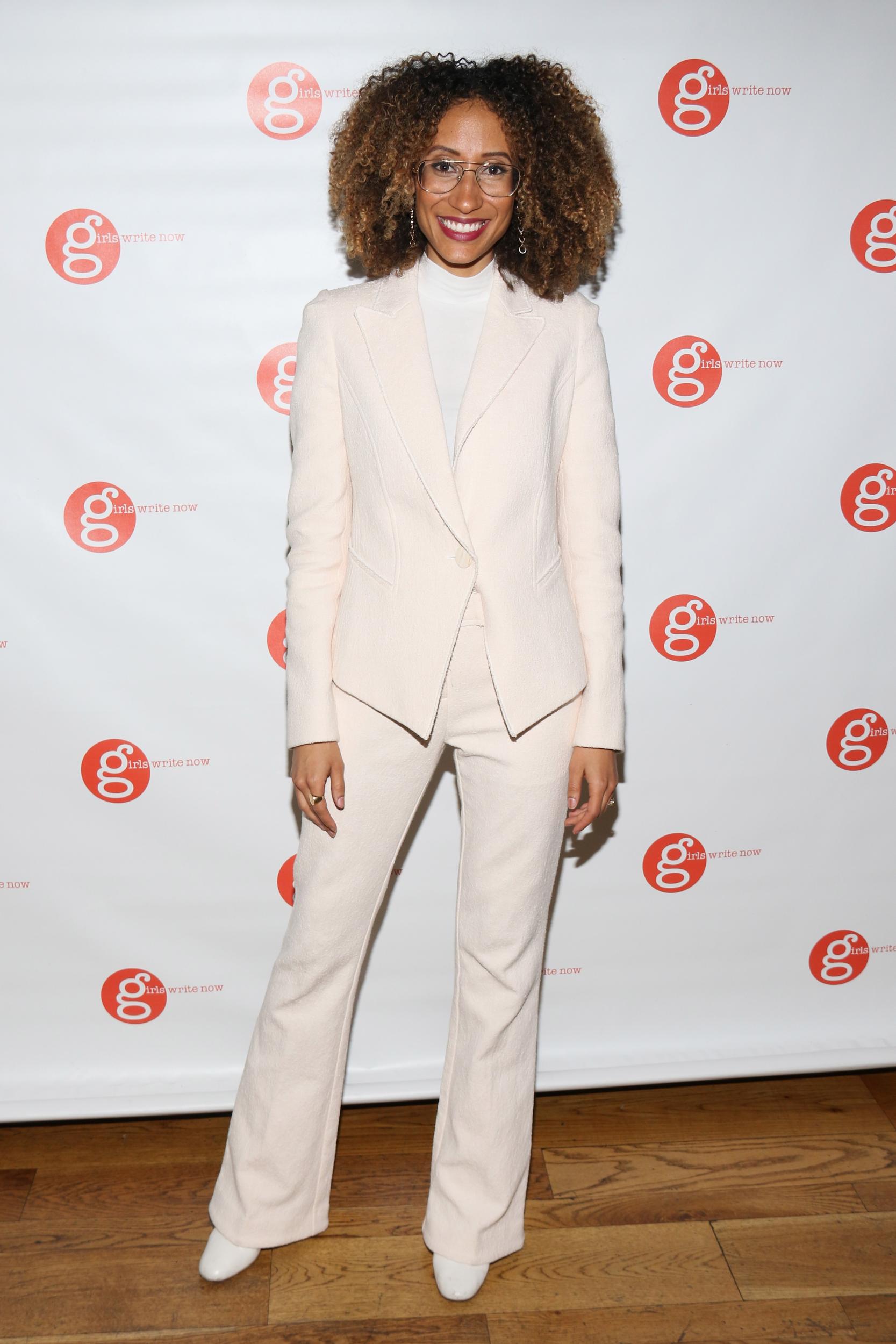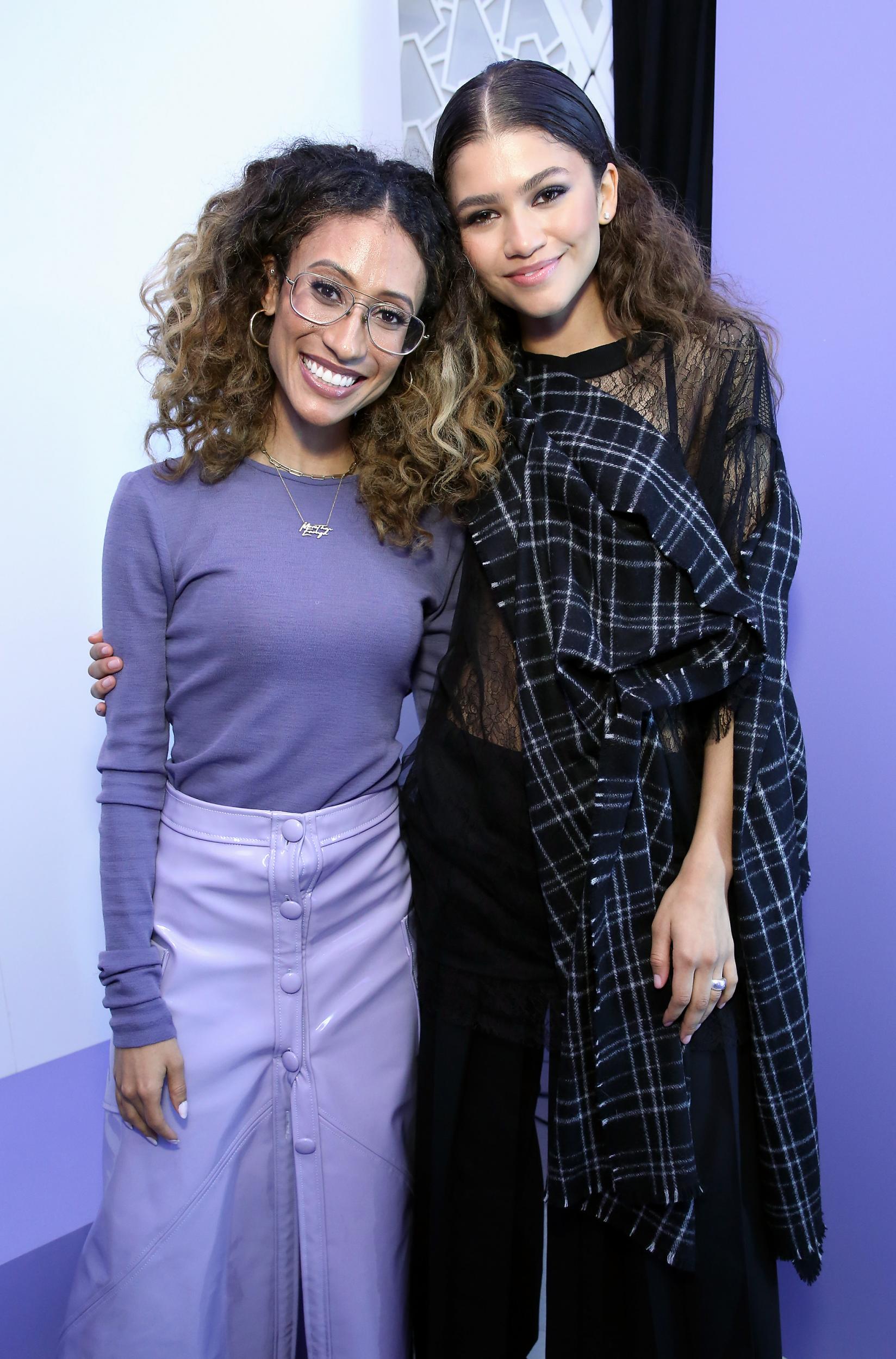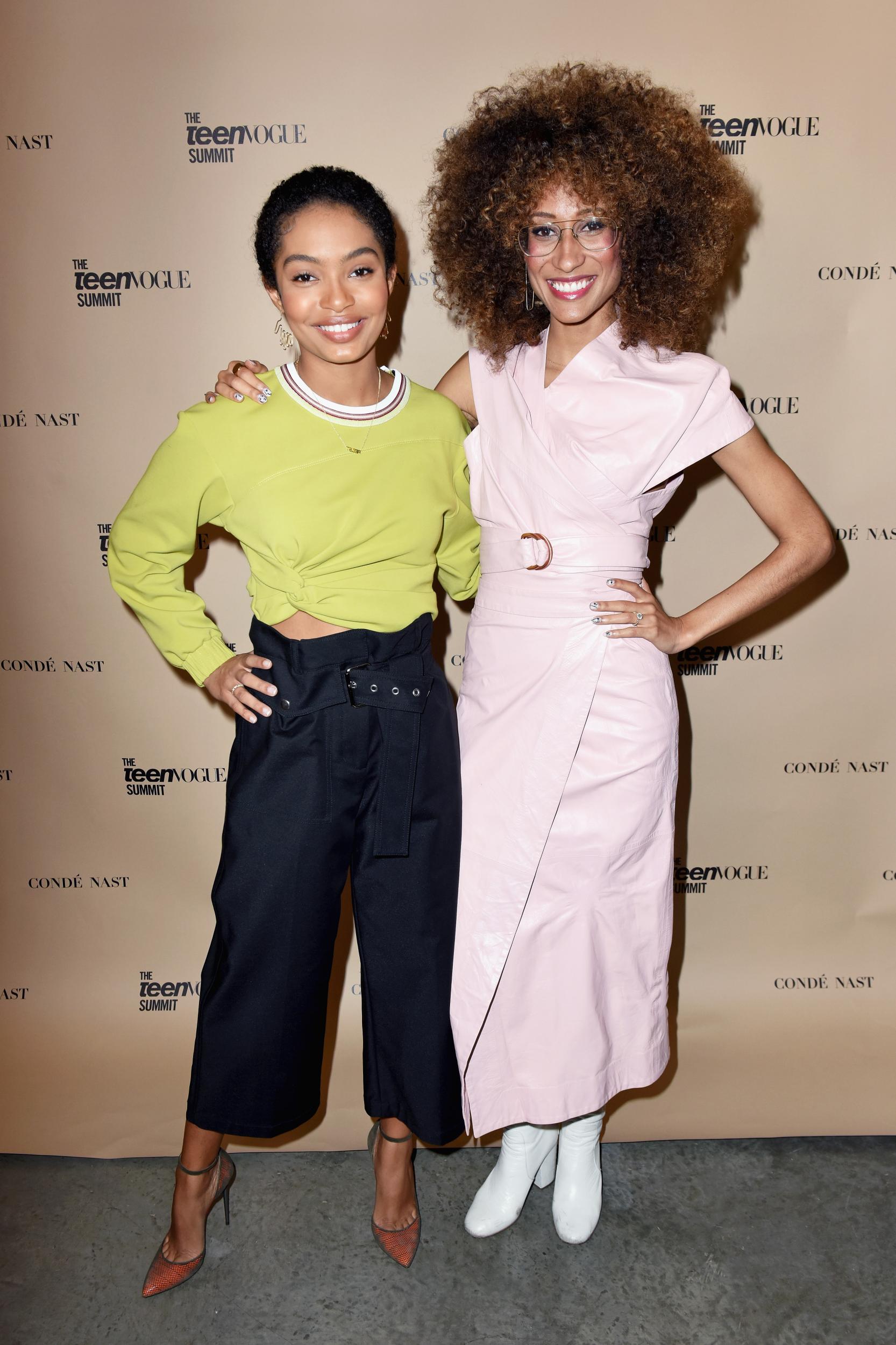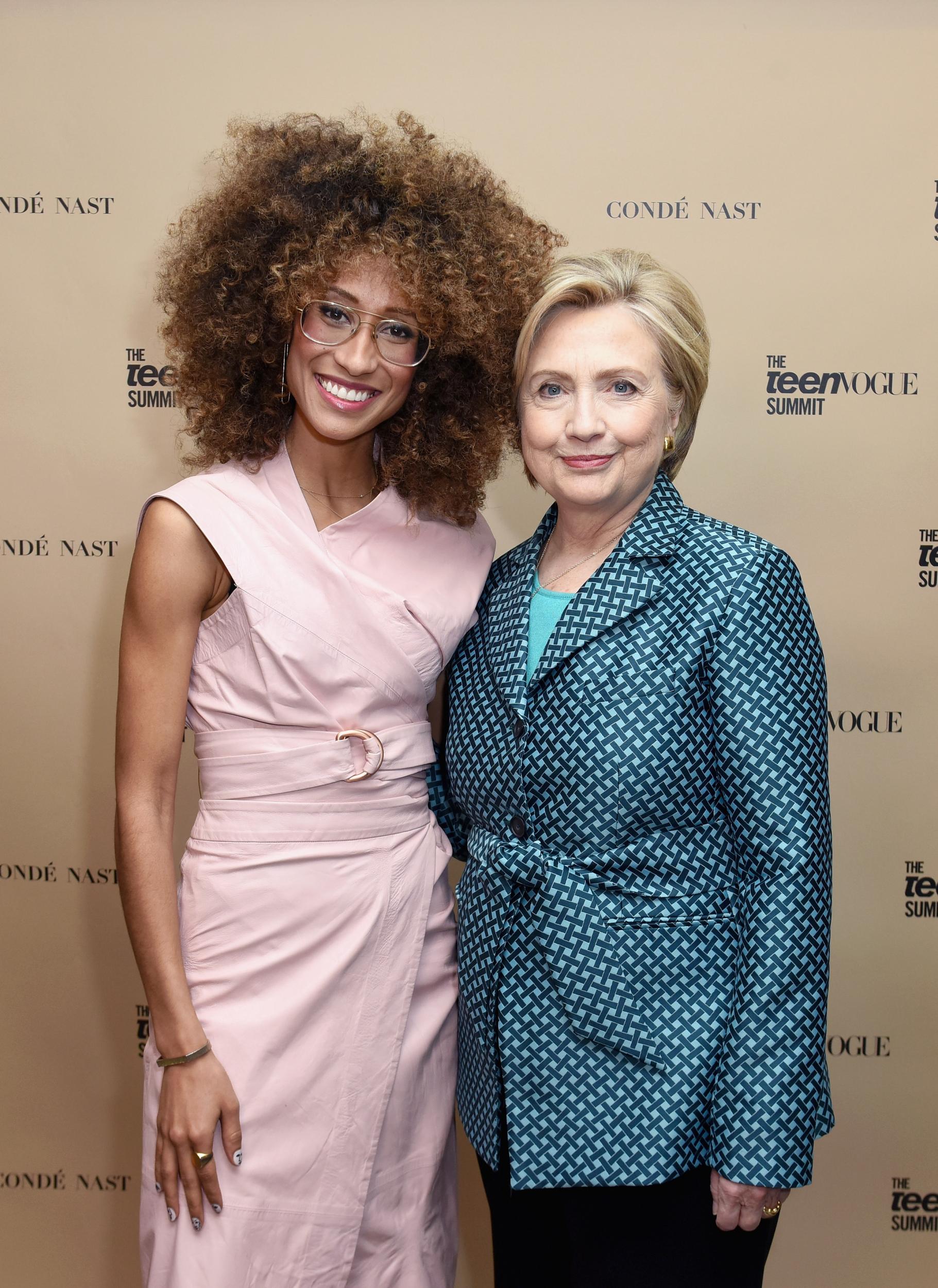
As a society, we hold firsts in high regard: graduating from university with first-class honours; finishing first on the leader board at your weekly spin class; becoming the first female president or first woman to set foot on the moon. To be first is widely believed to be the ultimate sign of achievement and merit.
However, in putting firsts on a pedestal, we often forget to acknowledge the hardships that come with making history and being viewed as the best in your field. The failures, the challenges and the low moments are all too often ignored when someone becomes a “first”.
A “first” is how you’d describe Elaine Welteroth. At just 29, Welteroth became the youngest person and the second ever African American to hold an editor-in-chief (EIC) title in Conde Nast’s 110-year history, when she was appointed to the role at Teen Vogue in 2017. The Californian-born author is widely credited for having transformed the magazine, broadening its content scope of youth fashion and beauty to encompass politics and activism, and tapping into the psyche of its young readership, who are equally as concerned with intersectional feminism as they are with the latest skincare products.
Four years before Welteroth was paving the way for change in her role as EIC, she had learnt the complexities that were associated with being recognised as the first black beauty director in the media company’s history, and the power that bestowed. “I had to stop and take inventory of what that really meant,” she tells The Independent. “Most revolutions and transformations start on a very singular, personal level before they can blossom into any kind of movement that galvanises people.”
In her first book More Than Enough: Claiming Space for Who You Are (No Matter What They Say), Welteroth questions what it means to come into your own – on your own terms – and tear down barriers across intersections. Throughout the part-manifesto, part-memoir’s pages, the 32-year-old references times in her life when she entered spaces at school, college and the workplace, and struggled to accept the notion that she was “enough”. That was, until now.
Here are Welteroth’s five lessons to finding confidence in the workplace.
1) View what makes you different as an advantage
Many of us believe that the worst thing we can be is different; that the colour of our hair, the music we listen to, our dress sense or the way we talk should fit within the status quo. Being a carbon copy of our contemporaries is thought to be fundamental if we want to survive and thrive.
This is an idea Welteroth regularly cites in her book. As a child, she cut out pictures of white models from magazines to make a collage that represented her family (“belonging meant blending into my environment”, she writes in the book), and pleaded with her mother to buy her a white-skinned ballerina doll. However, as a result of her mother’s teachings to take pride in her heritage – “when the world tells you to shrink, expand” – the author says that when she became the beauty director of Teen Vogue, she realised that it was important to champion the fact her race would “always be present”.

“I had to embrace that,” she says. “It’s a powerful and important strategy to embrace what makes you different – it can be your competitive advantage. It is a responsibility to represent for people who have never had that representation in these spaces before.”
In More Than Enough, the author references an abbreviation she learnt from American television producer Shonda Rhimes – “FOD”, which stands for “First. Only. Different”. “There is an assumption that simply by being first, by succeeding in rarefied white spaces, your existence comes with built-in credentials that make you an expert on diversity and inclusion,” Welteroth writes.
At times, Welteroth says that being known as a first in her industry made her learn quickly how to represent and speak for an underrepresented view without generalising.
Reflecting on her role as beauty director, Welteroth adds: “I had to reckon with what it meant to be in the role and taking off the mask I’d created over the years of trying to assimilate and fit into predominantly white environments in order to gain respect and a sense of credibility and authority.
“It was the first time in my career that I applied for a dream job and was thrown into the spotlight and asked regularly about diversity and inclusion as if I was some kind of expert on the subject just because I’m black.”
2) Recognise your worth
Discussing her skin colour, hair, career and love life in her memoir, Welteroth doesn’t shy away from addressing the crux of many women’s identity crises – the feeling of being “enough”. It’s a belief, she agrees, that often impedes women’s growth, both personally and professionally, as a result of society’s historic conditioning that they can and should be more. “Many of us struggle or are belittled by perfection,” says Welteroth. “Perfection is the standard by which we measure our success.”
In the book, the Project Runway judge opens up about her own feelings of self-doubt and self-worth. As a child, the 32-year-old says she wasn’t considered one of the “beautiful people” in her class after a game involving a group of boys ranking her classmates from pretty to ugly. Years later, on occasions, she faced judgement from people who didn’t think her to be “black enough”, “old enough”, or “political enough”.

“I’ve now reached this point of emancipation and I’m recognising the ways in which I’ve allowed this narrative to define and restrict me,” she says. “I would like to say to the world and myself that I am enough, I’ve done enough, and I’m woman enough, even when I’m a work in progress.”
With close to 400,000 Instagram followers, Welteroth says that in the age of social media that it is important to keep reminding young women – and men – that people are only showing their “greatest highlights in life”, instead of talking about the truth that we really feel or the harder days we’re having.
She continues, adding: “We’ve been raised to fake it until you make it and not let anyone see you sweat but we carry these insecurities around with us. I hope through creating community and conversation around this book we can open up the dialogue about what it looks like to be a successful and ambitious woman today.
“Women have had enough of not feeling like we’re enough. We need a counter-narrative to chip away at that notion.”
3) Rewrite the rule book
For centuries, society has been conditioned to identify by one thing: man or woman; feminine or masculine; black or white. Fortunately, the world is learning that you don’t have to be boxed in to identify with one subsection of society and find your place.
In her role as EIC of Teen Vogue, Welteroth says that she felt the need to broaden the boundaries of identity and beauty that she often felt confined to as a child. “I wanted to create a magazine that I needed when I was growing up,” she explains, adding, “one that reflected a diverse range of not just beauty but also role models”.
During her time at the helm of the publication, Welteroth pioneered the magazine’s exploration of politics and social justice, most notably in its coverage of the 2016 US presidential election. Researching, speaking and listening to the magazine’s readers, the journalist says she became aware that young people’s conversations were stretching beyond the areas of fashion and celebrity that it was previously believed they were most interested in.

“They were already talking about nuanced topics like intersectional feminism,” she says. “They cared about social justice issues so I felt that it was clear there was a white space to be filled. If we were to mean something and matter in the digital age, we would have to approach them in a way that respected their intelligence, intersectionality and nuance.”
For her first print issue as editor in May 2016, Welteroth chose singer Willow Smith to appear on its cover to address cultural appropriation. Months later, actors and activists Rowan Blanchard and Yara Shahidi graced its pages for the publication’s “Smart Issue”, followed by an interview between actor Zendaya and former US first lady Michelle Obama on young girls’ education.
“I wanted to throw out the old formulas, move beyond fashion, and prove that there could be a platform in this new era that made space for all aspects of a young person’s identity to be celebrated,” Welteroth explains. “For too long we’ve been forced subscribe to false binaries like ‘you can only care about fashion or politics’ or ‘you’re stylist or smart’. None of those are true. I know that because I embody that dimensionality.”
Taking the helm of the magazine during a time she describes as “great disruption, when roles were being rewritten and formulas were being thrown out”, she says was both a blessing and a curse. “It was an exciting time to be a young editor, a woman of colour, and finding my voice and finding a tribe of young people who were all challenging the status quo.”
4) Walk away when you need to
Recognising your personal value is hard at the best of times, let alone your financial worth. During her journalism career, Welteroth admits she has regularly asked her employers to increase her salary in order to reflect her hard work, experience and value in a business.
In her role as production assistant at Ebony magazine at the start of her journalism career – a role she gave herself when she changed her email signature from editorial intern, unbeknownst to her employers – the author asked her boss to double her wage. “I trusted my instincts and decided to go bold or go home,” she writes. Fortunately, it paid off.
After a year working as Teen Vogue’s editor (without a commensurate salary, an editor-in-chief title as is traditionally awarded, and an office, she notes), Welteroth told Vogue EIC Anna Wintour that she was prepared to walk away from the renowned position. Hours later, Wintour gave her what she formally deserved in the role.

The author says negotiating salaries is a tricky discussion but one that isn’t spoken about enough anecdotally. “We talk about it in platitudes and statistics but we need to do a better job in giving tools to the next generation of women who are still negotiating salaries and climbing the ladder,” she says.
“We’re doing an injustice to the next generation in making them feel that it will be easy – there’s nothing easy about negotiating or advocating for yourself.”
In her experience, the writer says that the first port of call when considering asking for a pay rise is to know your worth. “It gives you tremendous negotiating power to have a number that you’re willing to accept or walk away from if a negotiation cannot be made,” she explains.
Next, she says it’s important to prepare yourself emotionally and financially to be able to walk away from your job. “There’s nothing more powerful as a bargaining tool,” she explains. “It’s a privileged position to be in to be able to walk away from a stable job so sometimes it’s about biding your time – knowing what you’re willing to take for an amount of time and defining that time so that you have a game plan and have explored all outcomes before going into a negotiation.”
Above all, Welteroth says it’s ok to ask for time if you need to mull negotiations over. “The biggest thing women can do when it comes to negotiations is to ask for time and to not allow themselves to be bullied into making a decision overnight or be backed into a corner,” she says. In practical terms, the author advises that you should never share a financial figure before you’re ready and to ask for at least 24 hours to think about a job offer. “You’re entitled to that,” she emphasises.
“It might sound simplistic but these are the tactics that I didn’t have starting out,” she notes. “No one told me these things and it would’ve helped me tremendously during the harder moments of my career to have had someone say this to me.”
5) Remember that you’re a work in progress
With credits writing for the hit show Grown-ish, titles including Teen Vogue, Glamour and Ebony, appearances on ABC News and Netflix, and appearing as a judge on the new Project Runway, you’d be forgiven for thinking Welteroth has her career all figured out.
However, the author says that she continues to wrestle with her identity and that it’s ok to not fully know who you are.
“You can arrive at a place of feeling more than enough even when you’re a work in progress and searching for your identity,” she says, adding: “Or if you feel the world doesn’t see you fully, or you’re still finding your voice, or you’ve been known by the world in one way and are striving for a way to be seen in new ways”.
This is something Welteroth recently felt when she made the decision to walk away from her job as EIC of Teen Vogue last year. With her magazine career ambitions fulfilled, the author says it was time to find the courage to believe that there was more awaiting her around the corner. “It was time for me to close the door on my first dream in order to start building the next,” she writes.
“You spend your life trying to figure out what you are and different circumstances bring out different sides of you,” she says. “The goal is to be able to approach the evolving of yourself with a spirit of discovery, adventure and acceptance.”
More Than Enough by Elaine Welteroth is published by Ebury Press and is out now (£14.99)







